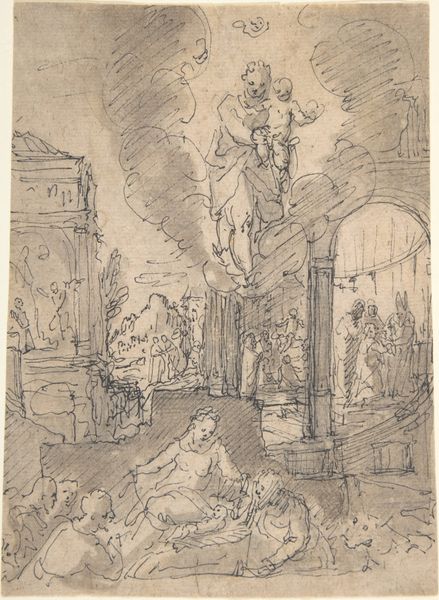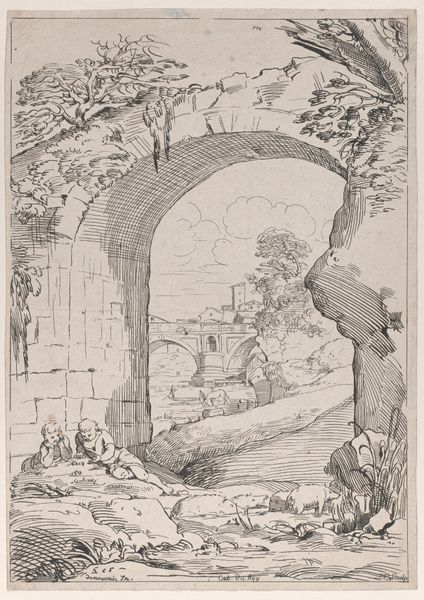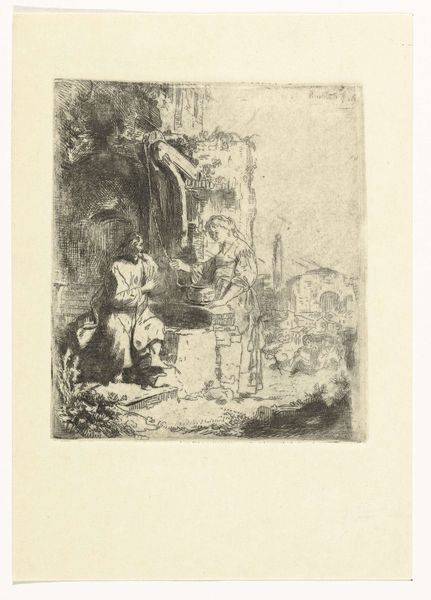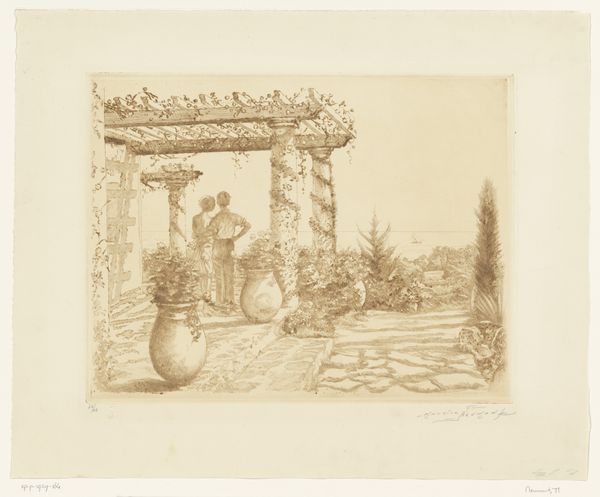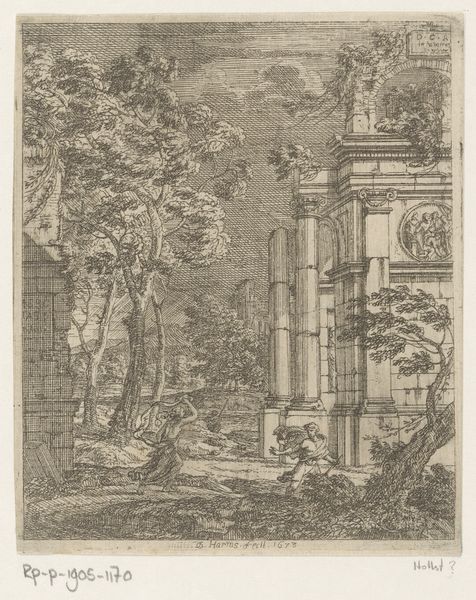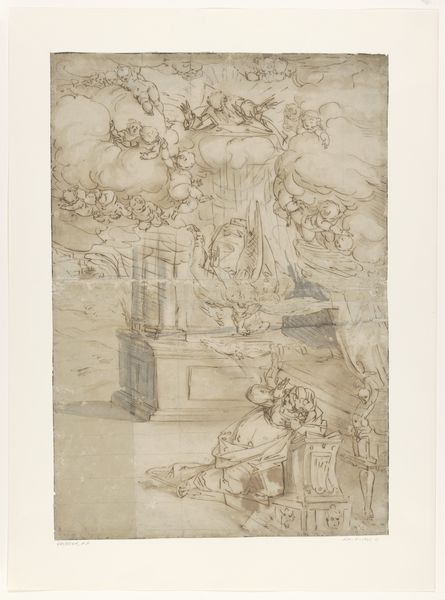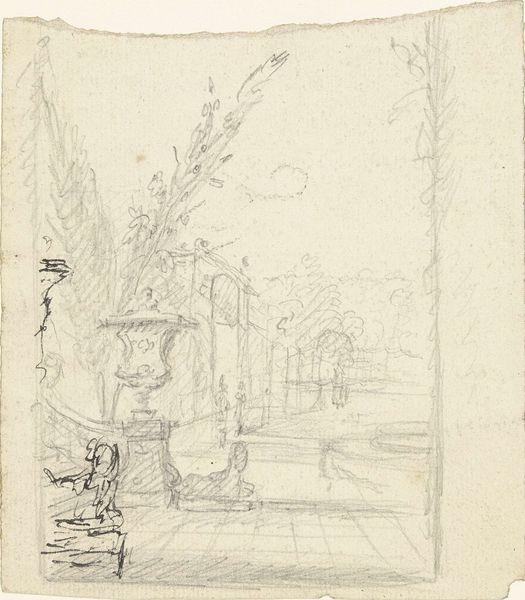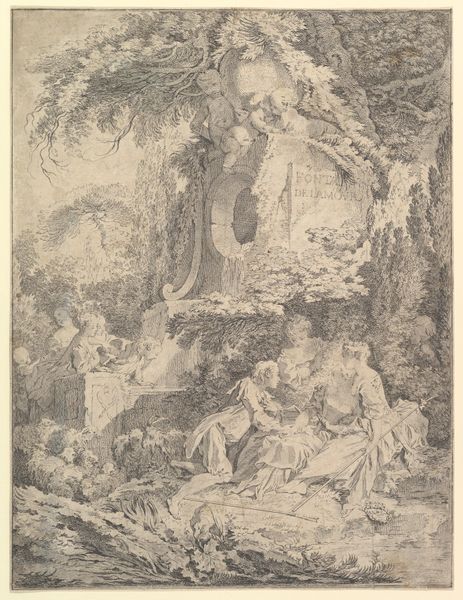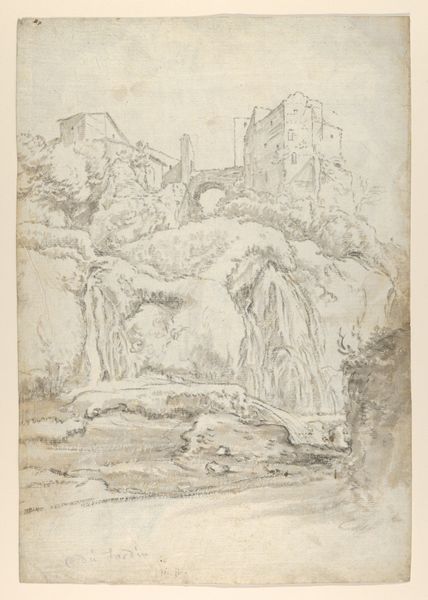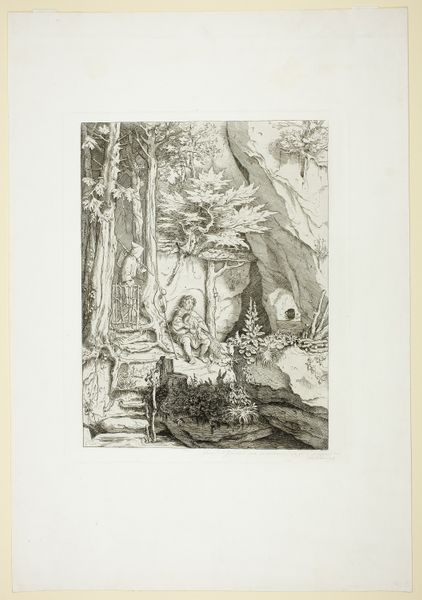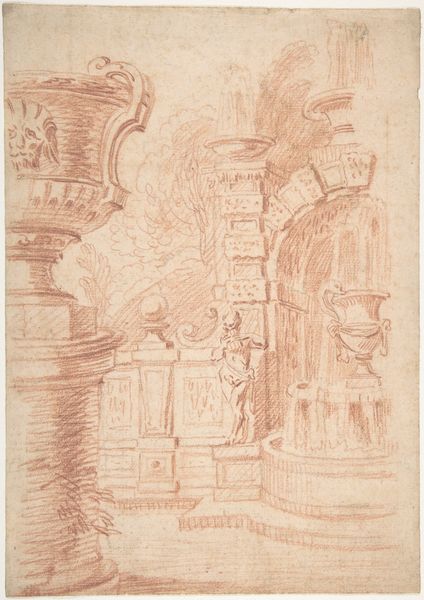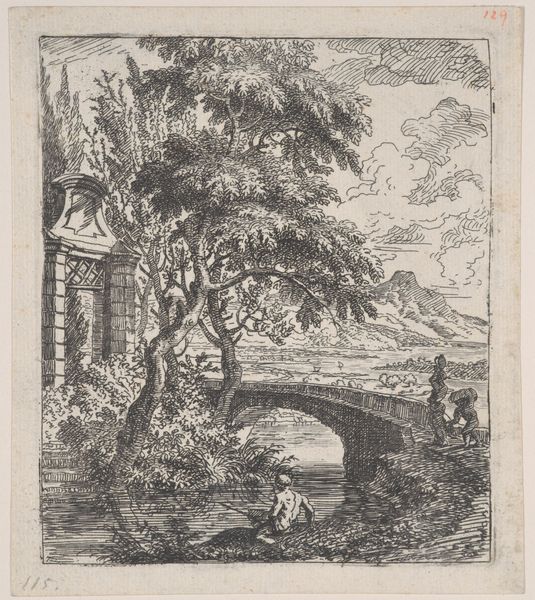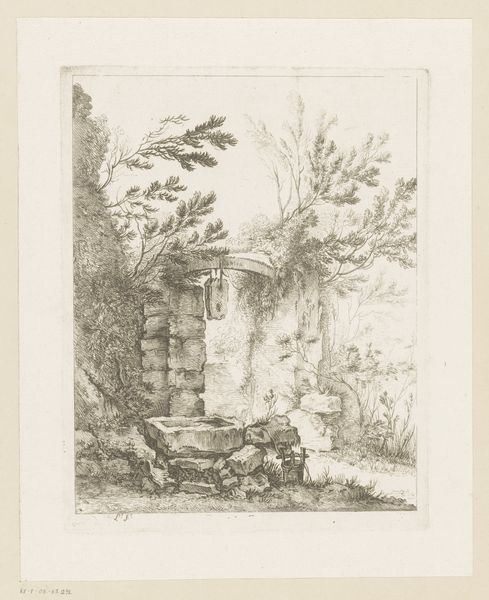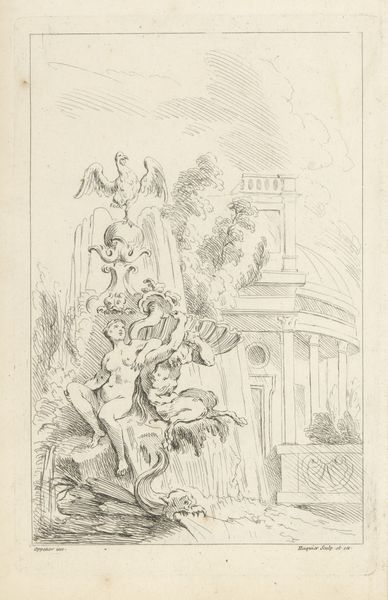
drawing, ink, pen
#
drawing
#
landscape
#
classical-realism
#
ink
#
pen
#
cityscape
Dimensions: height 168 mm, width 119 mm
Copyright: Rijks Museum: Open Domain
Editor: Here we have William Young Ottley's "Fontein," created around 1828, using pen and ink. The level of detail in the cityscape is quite remarkable. I find it has a kind of theatrical quality. How would you interpret this work, looking at it from a historical point of view? Curator: Well, "Fontein," meaning fountain, invites us to consider the public role of art in the 19th century. Ottley, as a curator himself, was deeply engaged with the display and understanding of art. Notice how the fountain isn't just a functional object, but a carefully staged spectacle within the urban fabric. The figures around it seem almost posed, like actors on a stage. Editor: That's a great point. It’s not just a drawing of a fountain; it’s a performance *around* a fountain. The figures definitely give that impression, and even the architecture looks somewhat like a set design. Curator: Exactly! Ottley's composition emphasizes this theatricality, highlighting the constructed nature of public spaces. We see how power and status were visualized through the art and architecture accessible to the public. Ask yourself, who *controlled* access to this space and the narratives told within it? This impacts our interpretation. Editor: It does change things, thinking about access and narrative control. What would people looking at this artwork have thought about back then? Curator: They might recognize and even take pride in the display of grand civic improvements, connecting to Classical ideals that were circulating through much of Europe. Also note the precise line work -- in England there was renewed emphasis on preparatory drawings for "high art". But they might also see a social commentary in the carefully constructed artifice. Editor: This has really opened my eyes to considering how the artwork functioned within a specific time and socio-political place. Curator: It’s a good example of the power of art to both reflect and shape society.
Comments
No comments
Be the first to comment and join the conversation on the ultimate creative platform.
